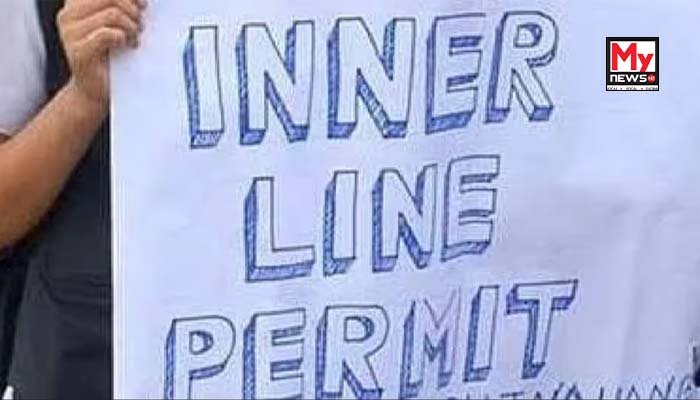Nagaland Cabinet Tackles Frontier Demand, ILP, and Reservation Policy
Kohima: The Nagaland Cabinet on Thursday engaged in extensive deliberations, addressing key issues including the Eastern Nagaland demand for “Frontier Nagaland Territorial Authority” (FNTA), the state’s job reservation policy, and the streamlining of the Inner Line Permit (ILP) system. Government spokespersons C L John, Minister for Forest, Environment & Climate Change, and Temjen Imna Along, Minister for Tourism and Higher Education, briefed reporters on the outcomes of the crucial meeting.
The Cabinet extensively discussed the Eastern Nagaland People’s Organisation’s (ENPO) comments on the draft proposals for FNTA, reaffirming its commitment to the basic principles agreed upon in the Memorandum of Settlement (MoS). It was resolved that the 12 points of divergence could be further negotiated, though specific details remained undisclosed. Earlier in the day, the Cabinet also met with A K Mishra, the Centre’s representative for the tripartite talks on the ENPO demand, in the presence of Chief Minister Neiphiu Rio and Chief Secretary J Alam. Minister Along stated that Chief Minister Rio briefed Mishra and his accompanying officers on the state government’s and the Cabinet’s stand, which is to not deviate from core issues and to continue mitigating the ENPO’s concerns through further deliberation. The earlier agreed position with ENPO should be strictly followed, with the 12 remaining points of difference open for further negotiation. The ENPO, an apex body of seven tribes in six backward districts of Nagaland, has been demanding a separate state since 2010. While they boycotted the Lok Sabha and Urban Local Bodies elections last year, the ENPO temporarily accepted the draft proposal for FNTA from the Ministry of Home Affairs in December.
Regarding the Inner Line Permit (ILP), which is mandatory for non-indigenous people entering the state, Minister John announced that the Cabinet has revised its framework. A detailed plan to streamline ILP implementation in Dimapur has been approved. This includes ILP exemption for families of central/state government employees with valid ID, extending guarantor provisions to heads of public/private firms, and expanding online ILP application categories to include drivers, lawyers, homemakers, and private sector workers. Offline ILP issuance will continue until smart cards are rolled out.
The Cabinet also reviewed the High-Powered Committee’s report regarding the absorption of 147 Assistant Professors under the Higher Education Department. The department has been directed to re-examine the proposal and follow due process before re-submitting it for final approval. Updates were also provided on the progress of the Indradhanush Gas Grid Limited (IGGL) pipeline project, with NoC issued for 107 km out of the required 140 km, and a decision to expedite the remaining process.
Furthermore, the Cabinet approved the demand of five major tribes – Ao, Angami, Lotha, Rengma, and Sema – to constitute a Reservation Policy Commission to review the existing policy. Minister Along stated that a five-member independent Commission would be formed, including two IAS officers and representatives from the Central Nagaland Tribes Council, Tenyimi People’s Organisation, and ENPO. The government aims to finalise the terms and composition of the commission within a month, in consultation with all stakeholders to ensure inclusivity and fairness, addressing long-standing concerns from the five tribal groups.
Also read: Mizoram Sees Major Haul: Assam Rifles and Customs Nab Six with Rs 1.81 Crore Smuggled Areca Nuts

